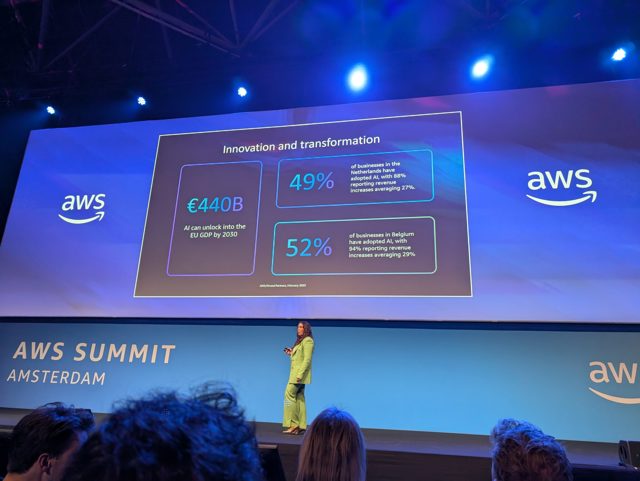< Back to news 


30 April 2024
ERC advanced grants awarded to multiple Amsterdam knowledge institutes
€652 million was allocated to leading researchers across Europe through the EU's Horizon Europe program, aiming to facilitate scientific breakthroughs. Notably, the Netherlands secured a total of 23 grants, with Amsterdam universities and research centres claiming around half.
The Netherlands received 23 grants for scientific discoveries
Earlier this month, The European Research Council (ERC) unveiled the names of 255 distinguished research leaders in Europe who were set to receive ERC Advanced Grants. These grants, among the EU's most prestigious and competitive, offer senior researchers the chance to pursue ambitious, curiosity-driven projects that could yield significant scientific breakthroughs in an array of disciplines, from life sciences, physical sciences, social sciences, and humanities.
Earlier this month, The European Research Council (ERC) unveiled the names of 255 distinguished research leaders in Europe who were set to receive ERC Advanced Grants. These grants, among the EU's most prestigious and competitive, offer senior researchers the chance to pursue ambitious, curiosity-driven projects that could yield significant scientific breakthroughs in an array of disciplines, from life sciences, physical sciences, social sciences, and humanities.
The newly allocated grants, totalling nearly €652 million, form part of the EU's Horizon Europe program. Estimates suggest that the grants will result in the creation of 2,480 jobs within the teams of the selected grantees. Of the total 255 EU grants, the Netherlands received 23 overall, closely following Germany, the United Kingdom, and France. Amsterdam claimed a share of 12 grants.
Amsterdam universities take a leading role
The University of Amsterdam (UvA) and Academisch Medisch Centrum from the Universiteit Van Amsterdam (UMC) received four grants, including funding that brings AI and Humanities together to explore the role culture plays in deep learning. As well as a collaboration between the Royal Netherlands Institute for Sea Research (NIOZ) and the UvA to find out the effects of plastic marine debris on the world’s oceans.
The University of Amsterdam (UvA) and Academisch Medisch Centrum from the Universiteit Van Amsterdam (UMC) received four grants, including funding that brings AI and Humanities together to explore the role culture plays in deep learning. As well as a collaboration between the Royal Netherlands Institute for Sea Research (NIOZ) and the UvA to find out the effects of plastic marine debris on the world’s oceans.
The Vrije Universiteit (VU) Amsterdam received five grants in total, for projects such as developing a new optical endoscopic imaging technique to detect cancer with a resolution 10 to 100 times higher than what is currently possible. Meanwhile, the Netherlands Cancer Institute also secured 3 grants. One of these projects aims to unveil the 'hidden biology' within cancer and delve into the realm of deep genetics to better understand the disease.
This funding not only creates important scientific findings but also helps grow Amsterdam’s AI, tech, sustainability and life sciences sectors. The city boasts numerous life sciences hubs like Amsterdam Science Park and Amsterdam Life Sciences District, alongside a thriving tech community. Together collaborating to strengthen Amsterdam’s key innovation ecosystems.
Published by UvA.
Vergelijkbaar >
Similar news items

April 16, 2025
AWS: Dutch businesses are adopting AI faster than the European average
New research from AWS shows that Dutch businesses are rapidly adopting AI—at a rate of one new implementation every four minutes, well ahead of the European average.
read more >

April 16, 2025
Submit your nomination for the Dutch Applied AI Award 2025
Do you know or develop an innovative AI application? Submit it now for the 2025 Dutch Applied AI Award, presented at the Computable Awards.
read more >

April 16, 2025
UK government tests AI to predict murders
The UK government is developing an AI system that could predict who is most likely to commit a serious crime. Critics call the project dangerous and discriminatory.
read more >